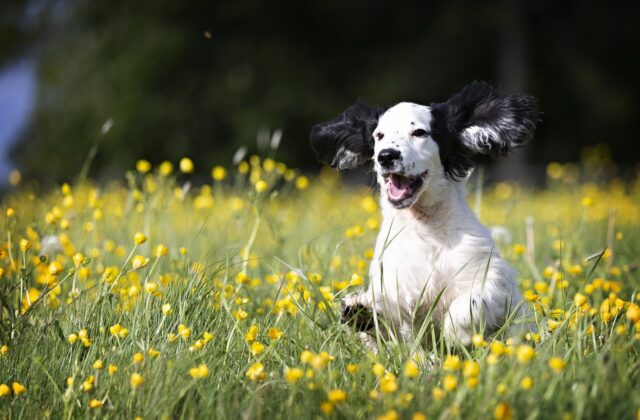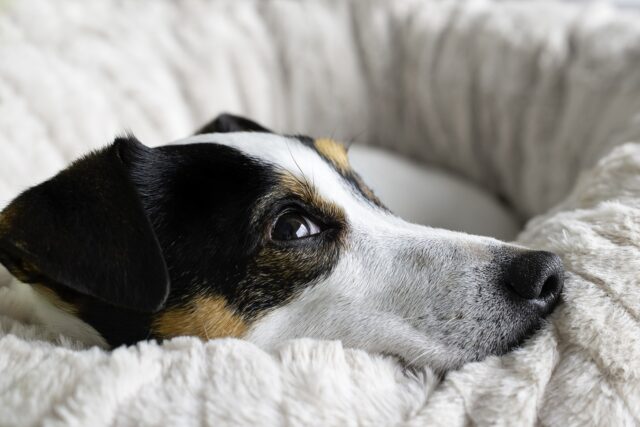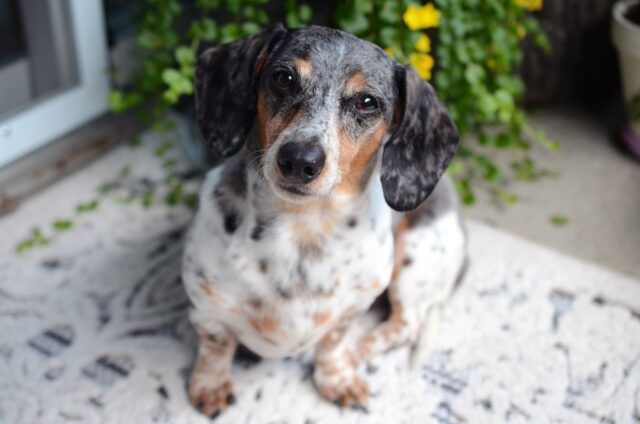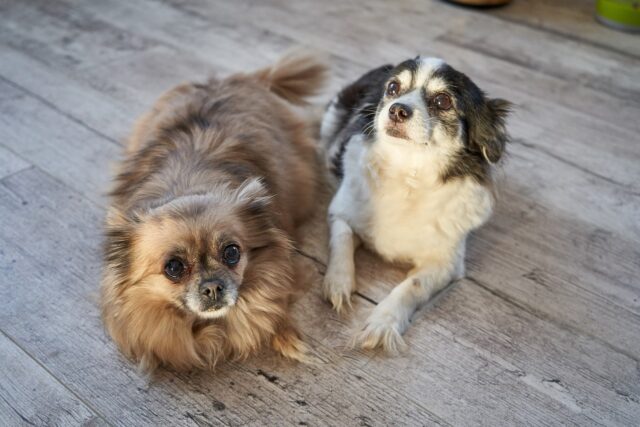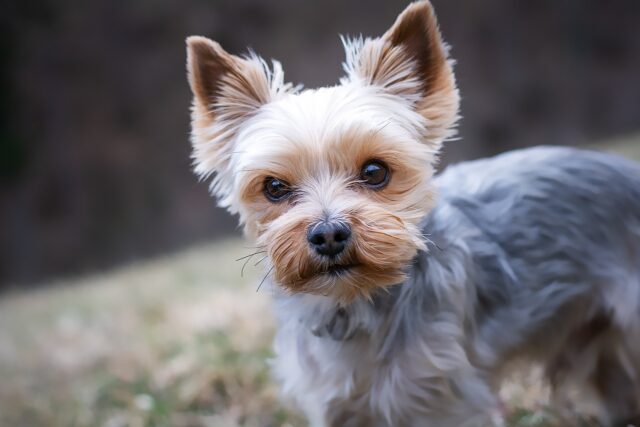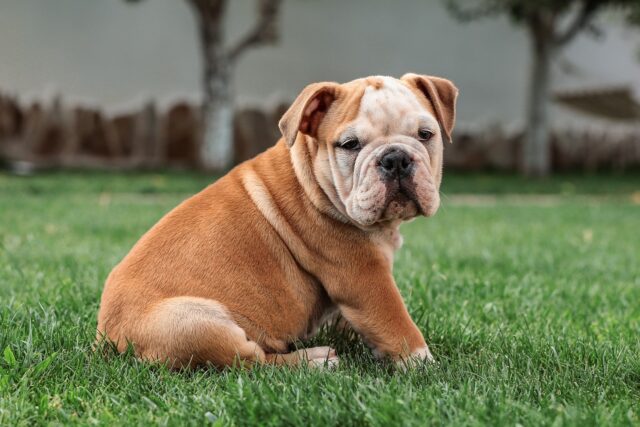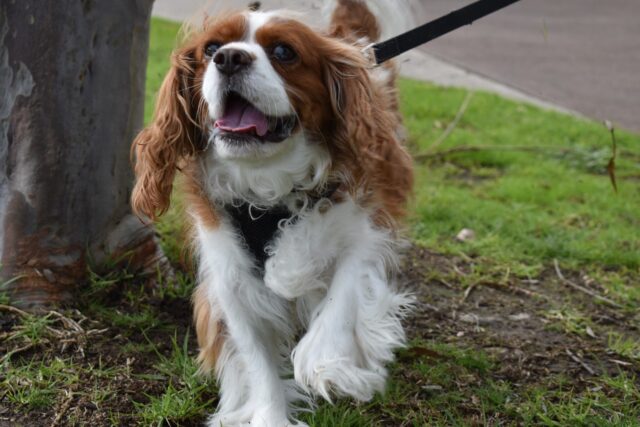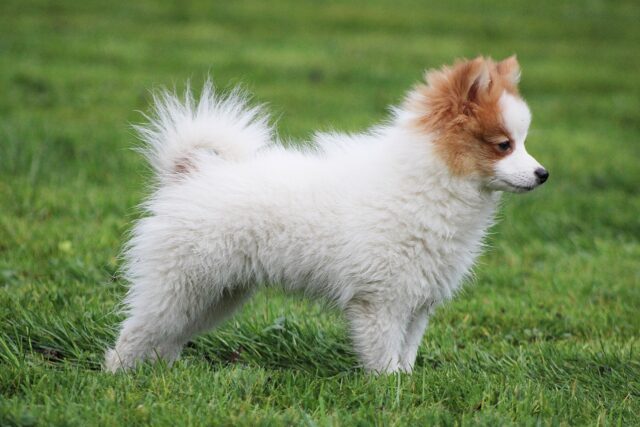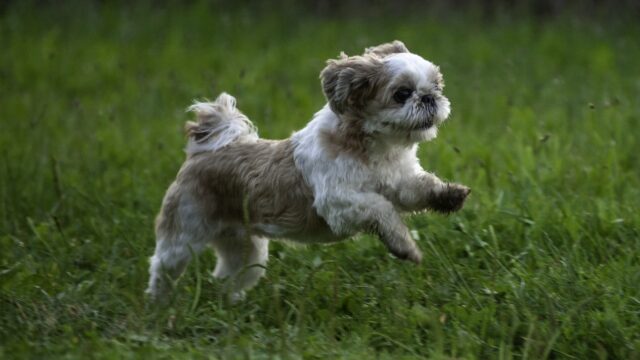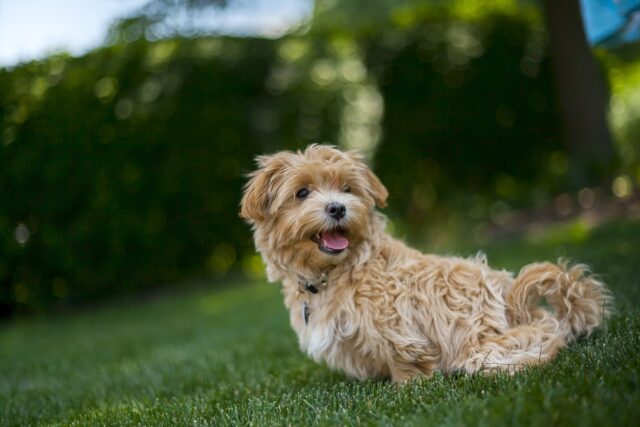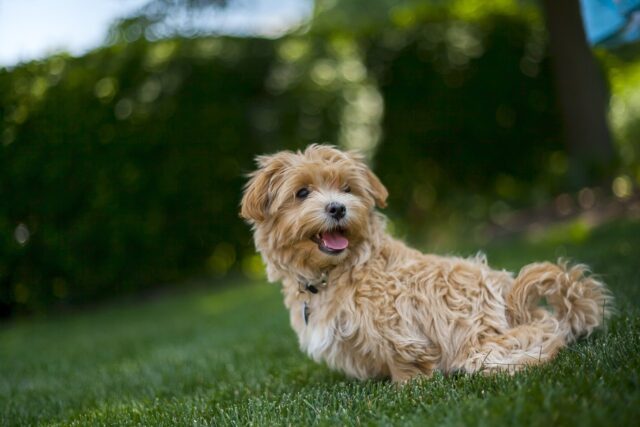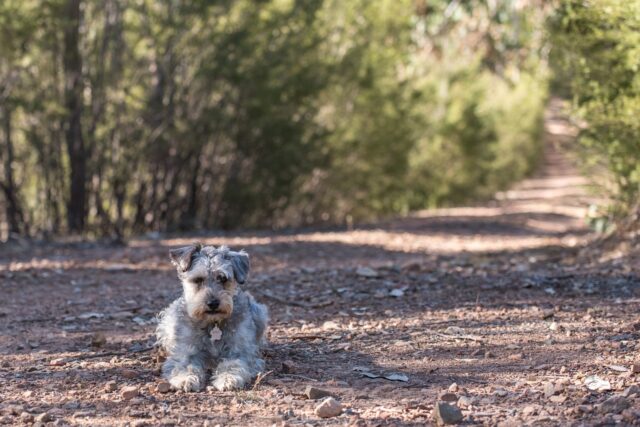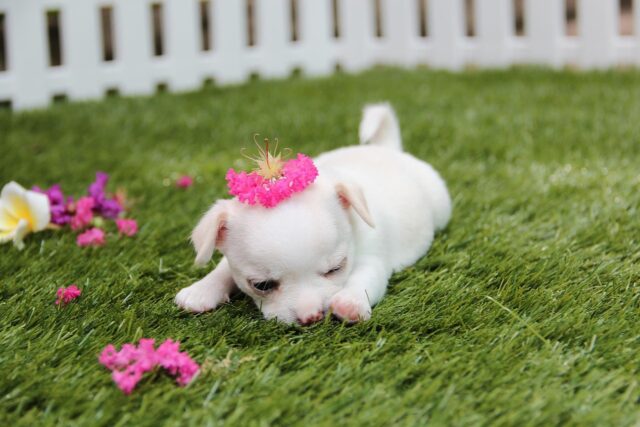The best small breeds for apartment living combine adaptability, low exercise needs, and affectionate personalities. Popular choices like the Cavapoo, Yorkshire Terrier, and Maltese are not only hypoallergenic but also thrive in smaller spaces, making them perfect for those in apartments or smaller homes. These breeds are easy to train, social, and make wonderful companions for singles and families alike.
Choosing the right small breed can feel overwhelming, but there’s no need to go it alone. With Pettito’s Pet Counselors, you’ll receive personalized breed recommendations tailored to your living situation and preferences. Simply answer a few quick questions, and Pettito will match you with your perfect puppy, ensuring a stress-free and informed decision-making process. No Puppy Mills, Either!
Remember that dogs are extensions of your lifestyle. They keep you motivated to exercise, get off the couch, and walk, and they also remind us of the unique human-animal bond that comes with parenting a furbaby.
Top Benefits of Parenting a Small Dog Breed
If you’re considering a small dog breed, there are plenty of excellent options to choose from. According to the American Kennel Club (AKC), small breeds offer a range of personalities, activity levels, and coat types, making them ideal for any dog lover. These dogs are especially suited for apartment living, as they generally don’t require intense exercise.
However, the AKC also points out that not all small dogs are content to be lap warmers. For personalized recommendations based on your lifestyle, Pettito Pet Counselors can help guide you toward the best small breed for your home and your family. Whether you’re looking for a calm companion or an energetic playmate, Pettito pet counselors ensure you find the perfect furbaby for your home.
Small Breeds Recommended by the AKC
The AKC recommends the following small dog breeds and more. We’ve just included a few:
- Affenpinscher
- Alaskan Klee Kai
- American Eskimo Dog
- American Hairless Terrier
- Australian Terrier
- Basenji
- Bedlington Terrier
- Biewer Terrier
- Bichon Frise
We also looked at what Nylabone had to say about the best small breeds. These are the best small breeds they mentioned:
- Maltese
- Boston Terrier
- Dachshund
- Shih Tzu
- Pug
- Pomeranian
- Chihuahua
- Yorkshire Terrier
- Poodle
- Bichon Frise
Why Choose a Small Dog Breed?
Small dogs are perfect for a variety of reasons. They’re easy to manage, require less space, and can be incredibly affectionate. These small dog breeds are known for adapting well to different environments, whether you live in an apartment or a house with a yard. Their compact size makes them easier to travel with and care for, and many breeds—like the Cavapoo, Yorkshire Terrier, and Maltese—are also hypoallergenic, making them ideal for allergy sufferers. Plus, they’re just plain adorable, winning hearts with their playful personalities and cuddly nature.
Best Small Apartment Dogs
Some, not all, small dog breeds are excellent apartment dogs and ideal companion dogs for seniors and families with children. Many small breeds are big dog breeds with tiny bodies and need active owners like the Corgi.
Terriers are also very active, intelligent, and headstrong dog breeds with strong predatory drives and tend to do better in larger spaces with plenty of room to run. Some small dog breeds are couch potato-type dog breeds and are easy to raise throughout puppyhood. These small breeds need less room, and their beds, bowls, and crates take up less space in a small space.
Many have been bred for centuries to fit into the size of a small apartment. That said, before going out and purchasing or adopting a small dog, you should consider the health needs of certain small dog breeds to ensure that you take out pet insurance and have the financial means to take care of your small family dog. Here are some health issues common to small dogs.
Some Veterinary Needs of Small Dog Breeds
Breathing Problems
Brachycephalic breeds often suffer from brachycephalic obstructive airway syndrome (BOAS), which includes stenotic nares (narrow nostrils) and an elongated soft palate. These conditions make it difficult for these dogs to breathe properly.
Overheating
Due to their compromised airways, brachycephalic dogs are more prone to overheating and heatstroke, especially in hot weather.
Dental Issues
The shortened skull often leads to overcrowded teeth, which can cause dental problems and require regular veterinary care.
Obesity
Obesity is a significant health concern for small dog breeds. Due to their compact size, even a small amount of excess weight can lead to severe health issues.
Eye Conditions
The prominent eyes of brachycephalic breeds are more susceptible to injuries, infections, and conditions such as corneal ulcers. The AVMA says that brachycephalic dogs were more likely than other dogs to have certain ophthalmologic issues:
- Corneal ulcers, 6.34 percent of brachycephalic dogs, 1.4 percent of others.
- Ocular trauma, 2.15 percent of brachycephalic dogs, 0.92 percent of others.
- Conjunctivitis is present in 10.81 percent of brachycephalic dogs and 7.76 percent of others.
What To Look For In Small Dog Breeds
There are a few key things to consider when looking for the best small dogs. Let’s examine what you should look for.
Temperament: Each breed has its own unique personality. Do you want a playful pup or a calm companion? Understanding the typical temperament of a breed can help you make the right choice.
Consider all the different characteristics you want in a small dog, like independence, activity level, low grooming needs, and fun-loving and affectionate.
Health Considerations: Small dogs can have specific health issues. It’s essential to be aware of common problems, such as dental or joint problems, that might affect your chosen breed. Tracheal collapse, patellar luxation, mitral valve disease, and hypoglycemia are some health issues that small dogs may be prone to.
Grooming Needs: Some small dogs require regular grooming, while others require less maintenance. Consider how much time and effort you’re willing to put into grooming.
Some dog breeds are known for having low-shedding coats. This means that these coats have a slower shed cycle than other coats and shed less. Low-shedding coats still need regular grooming and haircuts, but they will trigger fewer problems in pet parents with allergies.
Most Popular Small Dog Breeds
According to the American Veterinary Medical Association (AVMA) and the American Kennel Club (AKC), some of the best small dog breeds are here.
French Bulldog
- Overview: The French Bulldog, known for its bat-like ears and charming personality, is a famous companion dog.
- Size: Typically weighs between 16-28 pounds.
- Temperament: Affectionate, playful, and adaptable to different living situations.
- Health: Prone to respiratory issues, hip dysplasia, and skin problems.
Cavalier King Charles Spaniel
- Overview: This breed is known for its gentle nature and friendly disposition, making it an excellent family pet.
- Size: Weighs between 13-18 pounds.
- Temperament: Affectionate, friendly, and good with children.
- Health: Common issues include heart problems, hip dysplasia, and eye conditions.
Pomeranian
- Overview: The Pomeranian is a small, fluffy breed known for its lively and bold personality.
- Size: Typically weighs between 3-7 pounds.
- Temperament: Energetic, curious, and intelligent.
- Health: Prone to dental issues, patellar luxation, and tracheal collapse.
Shih Tzu
- Overview: The Shih Tzu is a toy breed with a long, flowing coat and a sweet temperament.
- Size: Weighs between 9-16 pounds.
- Temperament: Affectionate, playful, and good with children.
- Health: Common issues include respiratory problems, hip dysplasia, and eye conditions.
Dachshund
- Overview: The Dachshund is a lively and curious breed known for its distinctive long body and short legs.
- Size: Typically weighs 16-32 pounds (standard) or 11 pounds and under (miniature).
- Temperament: Playful, stubborn, and courageous.
- Health: Prone to back problems, obesity, and dental issues.
Best Small Dogs That Do Not Shed
The most popular Doodle small mixed breeds include Doodle mixes like the following:
Yorkiepoo (Yorkshire Terrier + Poodle)
- Overview: The Yorkiepoo combines the playful, energetic nature of the Yorkshire Terrier with the intelligence and hypoallergenic coat of the Poodle.
- Size: Typically weighs 5-15 pounds.
- Temperament: Energetic, affectionate, and good with families.
- Health: Prone to dental issues and patellar luxation.
Maltipoo (Maltese + Poodle)
- Overview: The Maltipoo is a friendly and social breed known for its adorable appearance and friendly demeanor.
- Size: Weighs around 5-20 pounds.
- Temperament: Gentle, playful, and amiable.
- Health: May face dental issues and white shaker syndrome.
Cockapoo (Cocker Spaniel + Poodle)
- Overview: One of the oldest designer breeds, the Cockapoo is known for its friendly and loving nature.
- Size: Can weigh from 6-19 pounds.
- Temperament: Friendly, outgoing, and good with children.
- Health: Prone to ear infections and hip dysplasia.
Cavapoo (Cavalier King Charles Spaniel + Poodle)
- Overview: The Cavapoo is a small, affectionate breed that combines the gentle nature of the Cavalier with the intelligence of the Poodle.
- Size: Typically weighs between 9-25 pounds.
- Temperament: Loving, gentle, and good with families.
- Health: Issues can include heart problems and hip dysplasia.
Shih Poo (Shih Tzu + Poodle)
- Overview: The Shih Poo is a playful and friendly breed, ideal for small living spaces.
- Size: Weighs 7-20 pounds.
- Temperament: Playful, affectionate, and good with children.
- Health: Prone to respiratory issues and dental problems.
Pomapoo (Pomeranian + Poodle)
- Overview: This tiny doodle breed is known for its fluffy coat and lively personality.
- Size: Weighs around 5-15 pounds.
- Temperament: Energetic, intelligent, and good for apartment living.
- Health: Can have dental issues and patellar luxation.
Westiepoo (West Highland White Terrier + Poodle)
- Overview: The Westiepoo is a small, playful breed with a charming personality.
- Size: Typically weighs between 20-30 pounds.
- Temperament: Friendly, energetic, and good with families.
- Health: May face skin issues and hip dysplasia.
Schnoodle (Schnauzer + Poodle)
- Overview: Schnoodles are known for their loyalty and intelligence, making them great companions.
- Size: Varies widely, but smaller ones weigh 10-20 pounds.
- Temperament: Intelligent, protective, and playful.
- Health: Prone to eye problems and hip dysplasia.
Whoodle (Wheaten Terrier + Poodle)
- Overview: The Whoodle is a friendly and energetic breed, combining traits from both parent breeds.
- Size: Can weigh between 20-45 pounds.
- Temperament: Energetic, intelligent, and good with families.
- Health: Issues can include hip dysplasia and eye problems.
These small doodle breeds are famous for combining Poodle traits with those of other breeds, resulting in various sizes, coats, and temperaments suitable for different lifestyles.
Tips for Choosing the Right Small Dog
Choosing the right dog is a big decision. Here are some tips to help you make the best choice.
Assessing Your Lifestyle: Think about your daily routine and activity level. Some breeds need lots of exercise, while others are content with lounging around.
Meeting the Dog in Person: Spend time with the dog before deciding. This helps ensure that your personalities are a good match.
Bringing Your Small Dog Home: Bringing a new dog home is exciting, but here’s how to make the transition smooth.
Preparing Your Home: Make sure your home is dog-friendly. This includes having a cozy bed, food and water dishes, and a safe space for your new furry friend.
Whether you adopt from a shelter or purchase a small dog breed, you should always consider energy levels, training needs, and temperament. Choosing the best small dog breed can bring immense joy and companionship. By considering temperament, health, and grooming needs, you can find a perfect match for your lifestyle.
FAQ’s Best Small Dog Breeds
Q: What is the most wanted small dog?
A: The most famous small dog breeds include the following:
- French Bulldog
- YorkiePoo
- Maltipoo
- Schnoodle
- Cavapoo
- Dachshund
- Shih Tzu
- Pomeranian
Q: What is the cleanest small dog breed?
A: All dog breeds benefit from regular grooming and trips to the groomers, but some are known to be particularly clean due to their low-shedding coats and minimal grooming needs. Among the cleanest small dog breeds are:
- American Hairless Terrier
- Xoloitzcuintli (Mexican Hairless)
- Bedlington Terrier
- Poodle (Toy and Miniature)
- Japanese Chin
- Basenji
Q: What is the friendliest tiny dog?
Here are our top picks for the friendliest tiny dog breeds:
- Cavalier King Charles Spaniel
- Shih Tzu
- Pug
- Boston Terrier
- Pomeranian
Final Thoughts
Choosing the best small dog breed can make all the difference in your home and lifestyle. Whether you’re looking for a hypoallergenic breed, a low-maintenance companion, or a playful pup, the right breed will bring joy and companionship for years to come. Small dogs are perfect for those living in apartments or smaller homes, and their affectionate nature makes them great family pets.
Still unsure which breed is right for you? Instead of overwhelming yourself with research, let the Pettito Pet Counselors simplify the process. With their personalized puppy-matching service and the best pet counselors, Pettito helps you find the perfect small breed based on your living space, lifestyle, and preferences. Save time and enjoy peace of mind knowing that you’ve chosen the right companion with expert advice.

